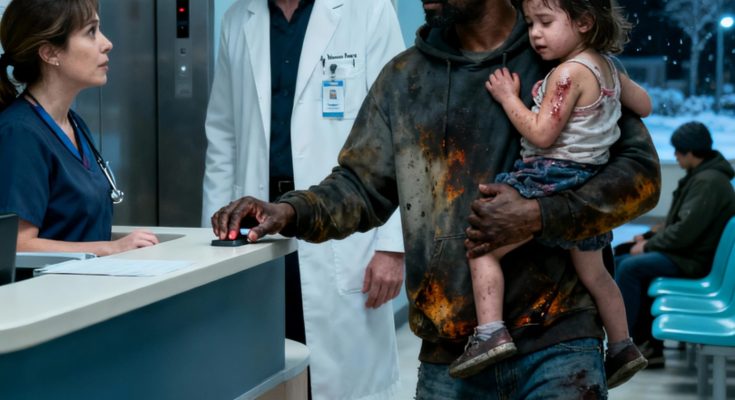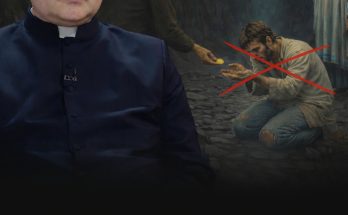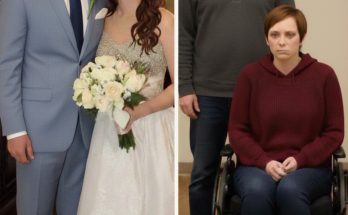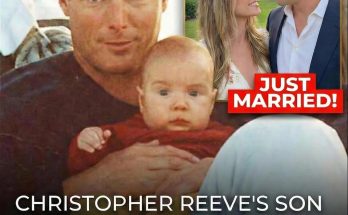The antiseptic smell of the hospital stung my nose the moment I stepped inside. The lights were too bright, the seats too hard, and the air too heavy with waiting.
My little girl, Aria, lay limp in my arms — her forehead burning, her breathing shallow and uneven. I had come straight from my shift at the auto shop, still in my oil-stained hoodie and torn jeans.
At the reception desk, I whispered, “Please, my daughter can’t breathe properly. She needs help.”
The nurse glanced at me, then at my clothes.
“Do you have insurance?” she asked flatly.
“I just need someone to see her,” I pleaded.
She sighed and called a doctor over. A tall man in a white coat approached, his name tag reading Dr. Mason Kerr. One look at me, and I saw his judgment written all over his face.
Without even checking on Aria, he said, “You should go to the county clinic. We don’t take patients without coverage.”
I froze. “Sir, she’s burning up—please, I can pay something—”
He cut me off. “Next patient, please.”
The words hit harder than any insult. People in the waiting room looked away as I carried my daughter back out into the freezing night.
At the county hospital, a young resident rushed Aria into triage the second she saw her. Pneumonia, they said — early but dangerous. She was treated immediately, and within hours, her fever started to drop.
That night, as I sat beside her bed, I made a silent promise: someday I’d walk back into that hospital—not as a desperate father, but as a man who could make a difference.
Three Years Later
The same hospital stood before me, but everything had changed. My reflection in the glass doors was no longer the man I used to be. I wore a tailored gray suit, polished shoes, and carried a leather briefcase.
In those three years, I had studied, worked multiple jobs, and built something that mattered. I founded The Aria Foundation, a nonprofit that provided affordable healthcare to low-income families—so that no parent would ever face what I did.
The very hospital that once turned me away had requested a meeting.
At the reception desk, I smiled politely.
“Please tell Dr. Mason Kerr that Mr. Damian Ross, Director of The Aria Foundation, is here for our appointment.”
When Dr. Kerr walked into the lobby, he stopped short. I could see the recognition in his eyes.
“Mr. Ross,” he said quietly, extending his hand. “It’s… good to meet you.”
I shook his hand. “Good to meet you too, Doctor.”
During the meeting, we discussed partnerships and funding for a new children’s health program. My foundation would sponsor treatments for uninsured kids—right here, in the same hospital.
When the paperwork was done, I turned to leave, then paused at the door.
“Three years ago, you told me to go somewhere that treated people for free,” I said softly.
“Today, I’m here to make sure no one ever hears those words again.”
He lowered his head. “Mr. Ross… I was wrong.”
“I know,” I replied. “But that moment helped me become who I am.”
The Meaning of Success
That evening, I came home to find Aria drawing on the floor.
She held up her paper proudly. “Look, Daddy! It’s your clinic — the one where everyone gets help!”
I smiled through a lump in my throat. “That’s exactly right.”
Years later, The Aria Foundation grew into something far beyond what I’d imagined—offering free screenings, community care, and scholarships for young doctors who believed in compassion first.
Sometimes people ask if I forgave Dr. Kerr.
The answer is yes—not because he deserved it, but because forgiveness sets you free.
We all face moments when we’re judged or overlooked. But how we respond can define the rest of our story.
Success isn’t revenge—it’s transformation.
It’s walking back into the room that once broke you and proving that kindness can change everything.




